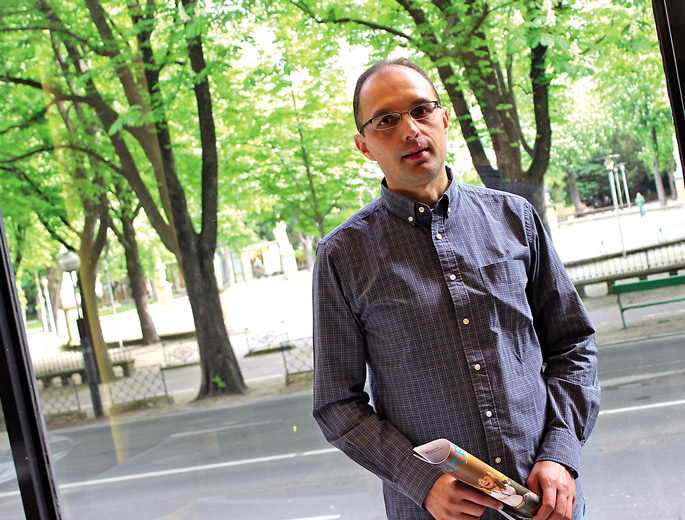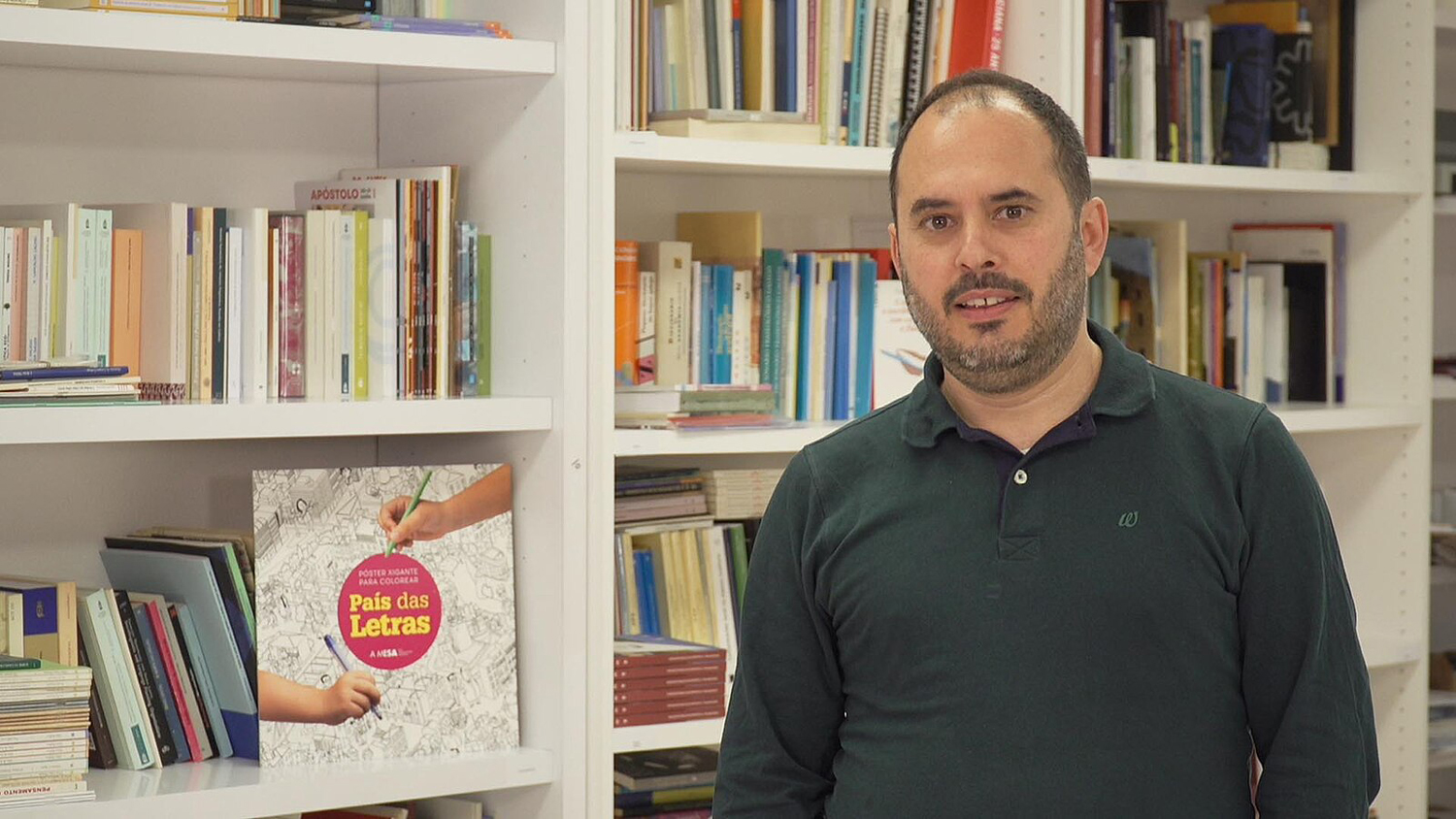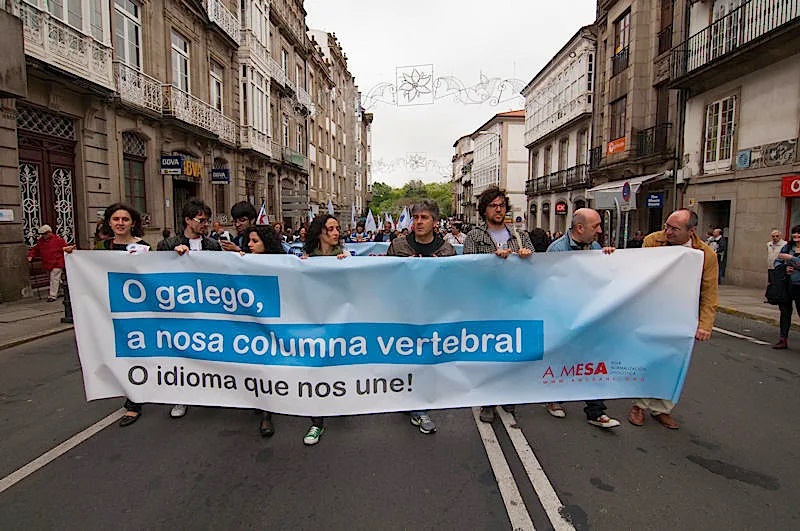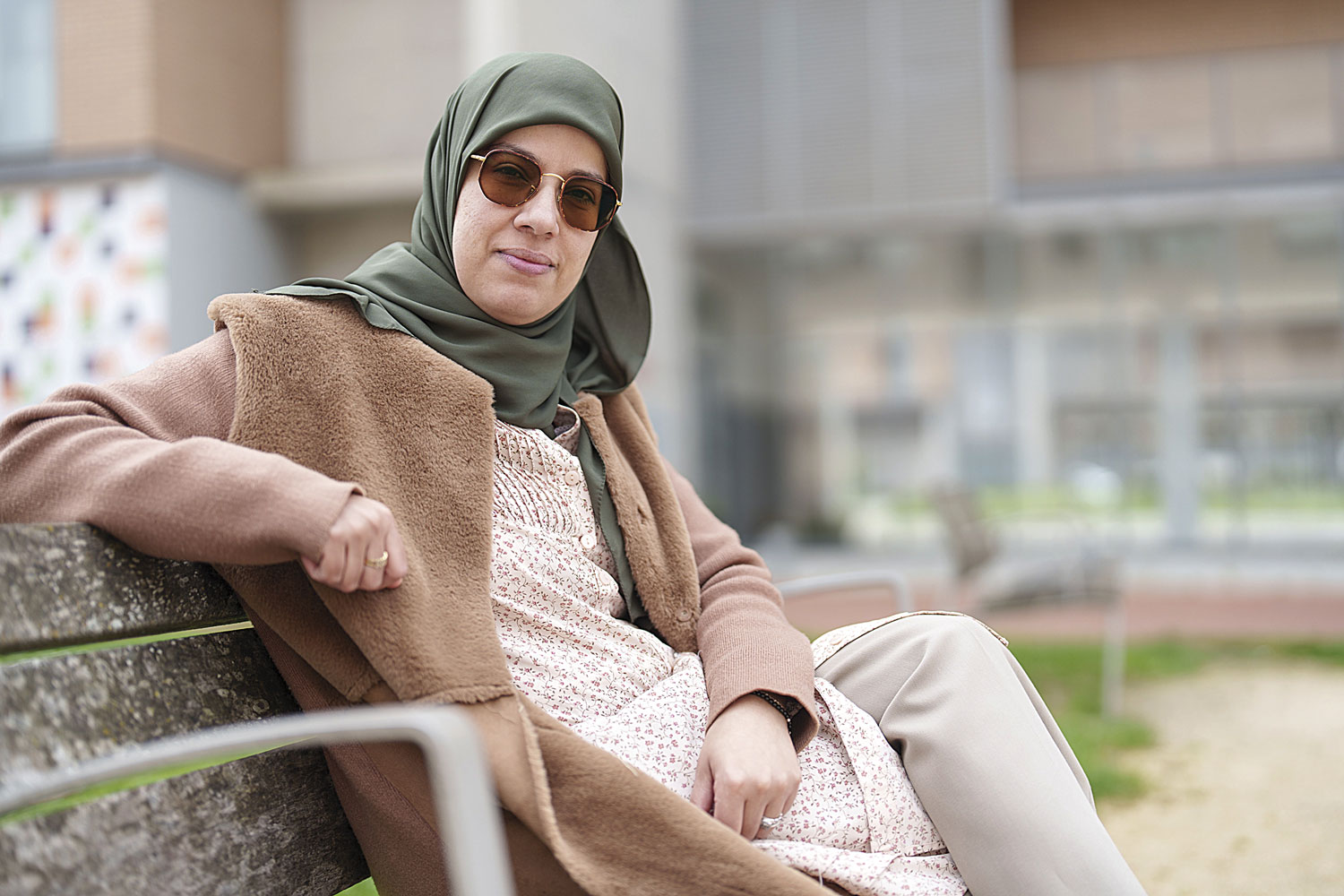"In Bierzo, the Galician is being lost along with the elderly."
- Not in vain, Rafael Adam has seen that he is reading a newspaper. The text, entitled Spain and its languages, says that “the Government of Spain should defend the four official languages, but I do not believe it, is nothing more than a desire to do with all of them, a form of tactic”. He has visited Bilbao and Vitoria-Gasteiz, invited by the Unesco World Linguistic Heritage Chair of the UPV/EHU, to explain the teaching of Galician in Bierzo (León, Spain).

Galician outside Galicia, Bierzo de la Comunidad de Castilla-León…
Galician is the natural language of the country, as natural as that of Orense! As you know, the evolution of Latin in this territory has focused on the development of Galician-Portuguese, a language that has remained until today. The truth is that Bierzo does not depend on the Galician administration, and that its inhabitants do not have the right to that language and have lost visibility. In any case, the Galician has lost its institutional value in Bierzo: neither in the health system, nor in municipal services, nor in education, the Galician has had a place in Bierzo.
Today he has something of a truth.
Yes. In 2001, the Junta de Castilla y León and the Xunta de Galicia saw the need for an agreement, given that in some territories dependent on their administration the speakers expressed themselves in Galician. Consequently, they signed an agreement for the promotion of the Galician. If wanted, they gave a political response to pressure from various organizations. Indeed, the new generations of the Bierzo were losing the Galician, so action was needed. So they thought it was best to teach Galician at school, and they started doing it not only in Bierzo, but also in Sanabria (Zamora).
What progress has been made since then?
Not as much as many wanted, but something has been done. The teaching of Galician in the schools of Bierzo was a step. One more step was, for example, the fact that the statutory reform approved by Castilla-León declared that the Galician – and the Leonés- must be respected and protected in the communities in which these languages are spoken.
But if the law is to be enforced, political will is needed.
If it is not met, it is in vain. Look, a long time ago, one of the most important measures to prestigious the Galician in Bierzo has been to be able to watch Galician television in the region. Galician television began to broadcast in the 1980s, and it was seen without problems at the Bierzo. Well, when the neighbors saw that on the screen they talked the way they did, they gave it value. Also practical value: the elderly who wanted to know the weather forecast, for example, turned directly to Galician television. “What time will you spend in Lugo and Orense? That’s what we have here!” they said in Bierzo. Looking at Spanish television you couldn't know! Along with time, cartoons have also been of great importance, as children consume them. And there will also be no lack of music programs, as many musicians from the Bierzo have had the opportunity to play music on Galician television.
In 2001, they started teaching Galician in the schools of Bierzo.
The Junta de Castilla y León and the Xunta de Galicia signed a protocol to introduce Galician as an optional subject in teaching. In Early Childhood and Primary Education, for example, students may choose to receive a certain subject in Galician or Spanish. In Secondary School, the social area has the option of studying in Galician, and with it, in 4 of the ESO, has the Galician language and culture subject in the optional. Today, on the other hand, the possibility of learning the Galician language and culture is extended to two Bachillerato courses.
The traffic signs in Spanish are outlined and corrected in Galician.
The normalisation of Galician is an action of the people, of course – rebellious action, if you like – which demonstrates that there is a different language to Spanish in the Bierzo. In the little toponymy it also looks clear. Although the documents are written in Spanish, the names of the lands of them are of a Galician nature. In some cases there are also signs of castellanizing this small toponymy. Although the name of the town is Vilafranca do Bierzo in the mouth of the inhabitants of the region, Villafranca del Bierzo always appears in all written documents. In the end, people think that's the real name, and they don't usually use another one.
Are there other initiatives to advance the Galician in Bierzo?
Many do not want to do anything for the normalization of the Galician, they want things as they are, even though they speak of Galician. At the institutional level, our association is the Bertian Association with Lingua Xarmenta, for example, city councils have always shown a good disposition, be it the municipal government of the PP, the PSOE or Ezker Batua. On the contrary, when we have touched higher than the local institutions, the reception they have given us has never been so exciting. On the other hand, these institutions have no initiative, we have to go and ask.
The Galician speaking is one third of the population of Bierzo.
But we don't have an in-depth exam, and we should know exactly how many people speak Galician in the Bierzo. The Galician Academy and the Junta de Castilla y León have also been asked to carry out this study, but it has not yet been carried out. We believe that in Bierzo, the gallteness with the older people is being lost. The elderly mainly speak Galician, not the new generations. In Galicia we go back to the Galician, and further back to Bierzo, where there is no official language.
“250.000 lagun dira Bierzon, eta Ponferrada, Vilafranca do Bierzo eta Cacabelos dira herririk handienak. 2002-2003 ikasturtean 161 ikaslek eman zuten galegoz ikasgai bat ikasteko izena, eta joan den ikasturtean 833 izan dira. Gainera, Ponferradako hizkuntza eskolako ikasleak eta Zamorako Sanabriakoak gehitu behar zaizkie haiei. Kopuru adierazgarria da.
Galegoa ez da hizkuntza arrotza Bierzon, bertakoa da, Galiziarekin mugan dago eta guztiek ulertzen dute. Sasoi batean, ganadu feriak egiten zirenean, Galiziako eta Bierzoko jendea etengabeko gurutzaketan zegoen, eta ohiko hizkuntza da mugalde horretan. Bierzoko jendea kontziente da galegoz mintzo dela, haren galegoa Galiziako galegoa dela, Ourensen nahiz Lugon hitz egiten den bera, tokiko berezitasunak gorabehera. Ikasliburuak ere berak dira leku guztietan”.
Lagunarekin galizieraz ari zelako gizon batek besoetatik heldu eta demanda egin ziola salatu du emakume batek Lugon. Poliziak erasotzailea identifikatu du dagoeneko. “Gure herrian gure hizkuntza hitz egiteagatik beldur izatea nahi dute, baina ez gara geldituko”,... [+]

























